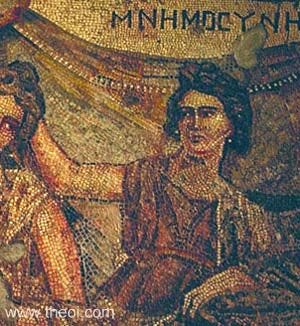The Syntax Of Reality
Language Is Not The Landscape, Words Are Not The World, They Illuminate It
Just as the map is not the territory, language is not the landscape, and words are not the world.
Welcome to a piece “From The Future”. Each week, I alternate between essays or fiction.
Read along as I finish three books, including a draft for “Book #3, RETRIEVE”.
Future + Fiction is the formula for everything, whether it’s an essay, story or chapter.
Most pieces are best read online, via the Substack App, when you have fifteen minutes.
"Language is the glue that holds us together and the first weapon drawn in conflict."
—Film, “Arrival”
"If we're seeing the world our ancestors put in our language, we're not seeing the world we're living in" —Robert Anton Wilson
This is a riff about “LLMs”, not large language models but Living Language Memories.
Martin Amis, riffing off Anthony Burgess*, said there are two kinds of writers, storytellers and users of language. That hasn’t changed, with carbon beings as the former, and silicon the latter.
A sentence can be poetic meter from which the writer is free to explore by experimenting in unexpected ways. What begins as warehouses of words, becomes launchpads for imaginations.
Language illuminates invisible realities between people, with countless dialects.
Just as the map is not the territory, language is not the landscape, and words are not the world. They are not the “thing”, they describe it, they illuminate its unreal realities. It both binds us and breaks us. We make peace, war, and all between under its light.
We share a common language through the commonplaces of stories, shared back and forth, from one to many, many to one, from past, through the present, to the future.
I have noticed how many write about the end of life as we know it, but it won’t be the first time. Others write about the beginning of a new world, it won’t be the last one.
I believe that we will retell stories in new ways with new words about the same world.
Welcome to the crossroads of experiential, historical, and deep time - story time.
In story time, places remain the same, the order of words and events change, again.
Stories are about the same things for the same reason, the making of a world.
I say that world building happens in stages, and tip-toes with exploration first:
Exploration - where are we headed? Where next? To go or not to go…?
Experimentation - what can we test and play, and retest and replay?
Experiences - what happened? who, what, where, when, why
Exigesis - what did it mean?
Event - What is/was this?
The difference is we now have animated words to build worlds with, on New Machines.

I think about Old Gods, including Mnemosyne, goddess of memory, a surviving Titan, and an ancestral deity for languages, histories, and stories. Her children were holy patrons of story and poetry in the game of imitation. They played the long meme of self-replicating, re-shuffling genes of the mind, and all of humanity’s memory games.
To speak of memory, many will say our minds, our memories, are in jeopardy, thanks to machines, perhaps like Plato’s imagined conversation of Socrates and Phaedrus, in “Phaedrus”, where “They will cease to exercise memory because they rely on that which is written, calling things to remembrance no longer from within themselves, but by means of external marks. What you have discovered is a recipe not for memory, but for reminder.”
I say our imagination leads, and is liberated by our “indexing” of everything, since the time of the first books and libraries, and serves Man’s greater purpose, minds in motion. Memory can be living but it is static. It is imagination which must be in motion to come alive.
The point of the “index” since the written and printed word, was that we needed to focus on our imagination, while the rest could be looked up for future reference. Like John Donne. Donne leveraged years of collected thoughts and readings, as a Commonplacer**, through the mashup and remix of interests, ideas, and information, recorded in commonplace books, as feedstock for the imagination and intuition.
Donne created hundreds of new words in neologisms, to make room for his ideas and images, all conjured by his imagination. That’s what I mean by “Living Language Memories”, the real “LLM” for humans to master, as the other “LLM” evolves into conversational intuitions with personalized intelligences for our private interest grids.
Today, my commonplace book is everywhere around me. It includes these words.
Tomorrow, my words will be memorialized, by the nano-moment, on the fly, by software-driven flies-on-the-wall, recorded on instances spun up on private long term memory storage, in anyplace I call home and via services similar to arweave. I see a new commonplace book, one that will feel like “living words” which I will live with, which will listen to and learn from me, to serve a greater purpose for my memory: a mind let loose in motion for story-time.
Things Of Our Own To Share, Each Of Us A “One Man Show”
Just as a “map is not the territory”, a model is not reality.
When we master ideas, iconography, imagery, and info we create a new syntax of reality.
We can move past, recreating, replicating, mentors and models of reality and desire.
We’ll make things, with their own common syntax and semantics, order and meaning, to share.
Jim Morrison predicted the rise of the one man musical creative act, with one person using tapes and electronics. We now have much more to help us do that creatively.
In 1980, synthesizers were seen as threatening and provoked a response. In 1990s, the US govt tried to maintain cryptography as a weapons grade regulated class of information, and now the field has moved on to zero knowledge. In the 2020s, Machine Learning is under the microscope by regulators, who are like everyone else, possessed with a telescopic fuzzy view of these next new tools’ potential, no more.
The “Infinite Feeling” I have comes from the belief that the next new tools we’ll take for granted, powered by what is named at the moment as inferences, software making software, will help us become different versions of Morrison’s “one man acts”.

Think of the way kids play and turn anything into everything with just their imaginations. A box becomes an impossible invisible place, set on an imaginary plain, within an extra-dimensional plane of imagination. It’s Star Trek’s “infinite diversity infinite combination”. It’s combinatorial diversity from our own works and findings.
Mostly-random search plus tons of time plus a simple loss function (survival) is how humanity and humanity’s works have propagated and populated the world, leaving behind art and the artisanal. In a post-search and post-brand age, we’ll have what I’ll call interweaved interest grids, made of software, underpinning our shared creations.
Perhaps, these tools may help us compose a personal commonplace including an in-house syntax of reality, including such abstractions as the lexicon and iconography of the structure of physical matter, chemistry, computer code, chromosomes, and more. Everyone’s commonplace will be different, just as it was with the first print versions.
Speak Once, Written Forever
Rhetoric will thrive in a post-search engine age of what I call Socratic Engines.
The service economy has devolved from customer service in servitude to brands, for search engines turned into scrolling pages of advertisements and paid placements. A post-brand world is one of our own making, from our imagination. Think about kids and make-pretend games. We don’t need pre-made products, we will conjure our own.
In order to know what to say to an “Intelligence” we will have to be “intelligent” first.
During this nascent stage, specific forms of rhetoric are needed to use machine models. As the models are trained, humans are being trained by the constraints of models for requests and queries. Over time, this evolves into constant conversation.
We have to learn the history of what was, much of it made by minds born and long gone before us, to develop a language of our interests, so that we can have Unique Generative Conversations with our “intelligences”. We develop and trust in our own tastes*** so that the flavor of our commonplace suits our preferences, our interests and intuitions.
For our "Intelligences”, the floating sleeves of augmented intuitions of our extended selves, to be helpful, we ourselves must know something, we must explore by experimentation through what was and is around us. If we lean into curiosity, explore, we’ll gather “events”, as Commonplacers**, ready to compose one man acts of our own making.
What could this mean for you and me? We’ll talk with our Intelligences, and they will “sit” with us as we riff, rewrite, and remember in a whole new way, and leave behind for the greater outer world a legacy of our lives, unique bespoke worlds of our making.
Living Language Memories.
You worry about the machines,
all making the same, more and more, billions
Lost sense of wonder, its magic torn asunder
Singular brilliance buried, nothing more than just “more”, Limbos
where mimicry becomes mockery
Do not worry
A landscape of the same is insignificant
A lonely work, unique, strange, remains magnificent
“The general laws of Nature are not, for the most part, immediate objects of perception."
—George Boole
(*Burgess’s answer of “writers and writers” is ironic given his experimental writing.)
(** “Commonplacer” was first used in 1631, in a John Donne sermon. There is Katherine Rundell’s book (see below), but also an article on Donne and his commonplace.”)
(*** think Rick Rubin, when it comes to developing and trusting in our own tastes.)
For much more, please check out “Super-Infinite” by Katherine Rundell (on John Donne), “Phaedrus” (Plato’s imaginary meet-cute/rhetoric dive between Socrates and Phaedrus), “Index” by Dennis Duncan (on the history of keeping track of all of our written memories).
Bonus: Jim Morrison as tech futurist guru




So much to unpack and think about here, Edward. First, your prose is mystical without being impenetrable, which I think is a gift. Well done.
Spitting out some ideas: the "Word" does need to "conform" to reality, but it also creates reality. God spoke reality into being, the old tale goes. The word does this, I think, by "chopping up" (literally what happens in the old myths) the Titans you mentioned. We take the primordial soups of being (the primary drives) and create what I've called "Hyper Landscapes" which is where we now reside, even if most people aren't aware of that insane historical development.
What I love about what (I think) you're pointing out is that these hyper landscapes must still reside in a pattern of reality. They can't just float off into kingdoms with random sets of rules. They are bound, for example, by evolution, among other things.
The post modern writers are the ones who thought these hyper landscapes could detach for their body and we could all become "supermen" in the style of Nietzsche and create our own morals. Not possible IMO. We still need biology and physics bound and therefore embodied ethics.
Which is what I see as our "mission." To remind people they have a body -- and not just their meat sack, but they have a cultural body as well. Denying your history (and religion) is as silly as denying your arm.
Lol. A lot there. Thoughts ?
Language is all to a writer. I wish more editors would realize this. Changing our words can change our meaning.